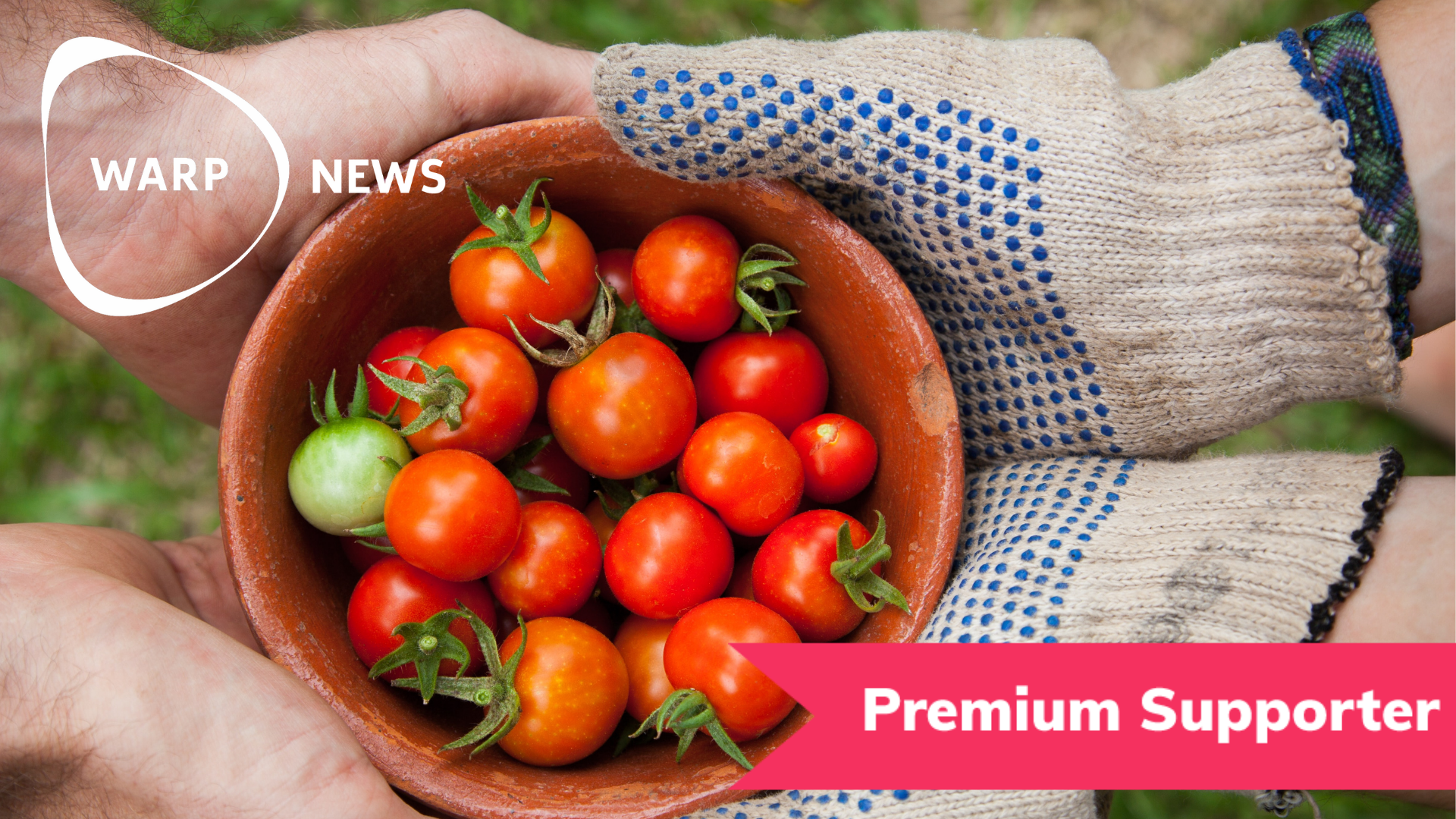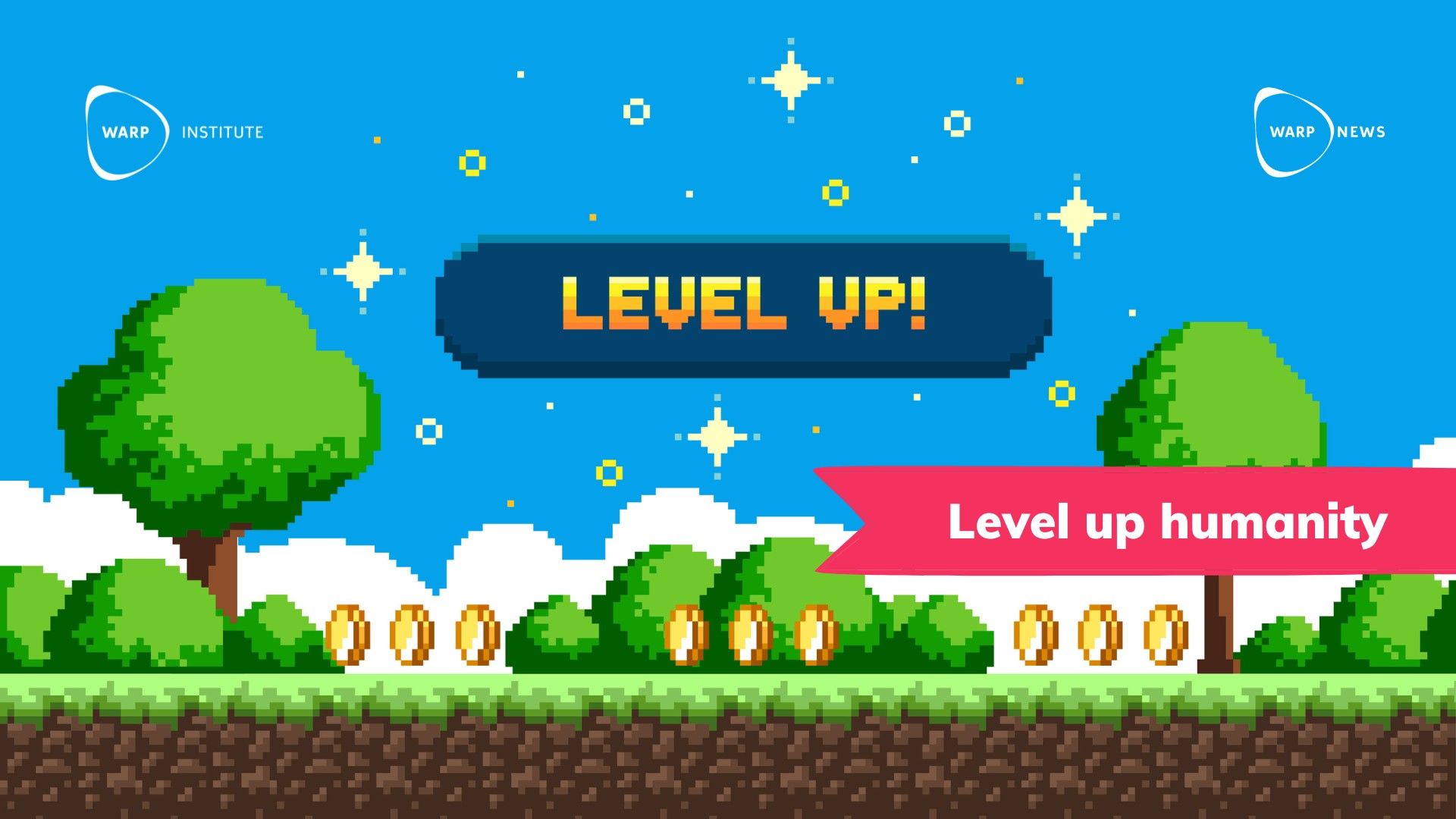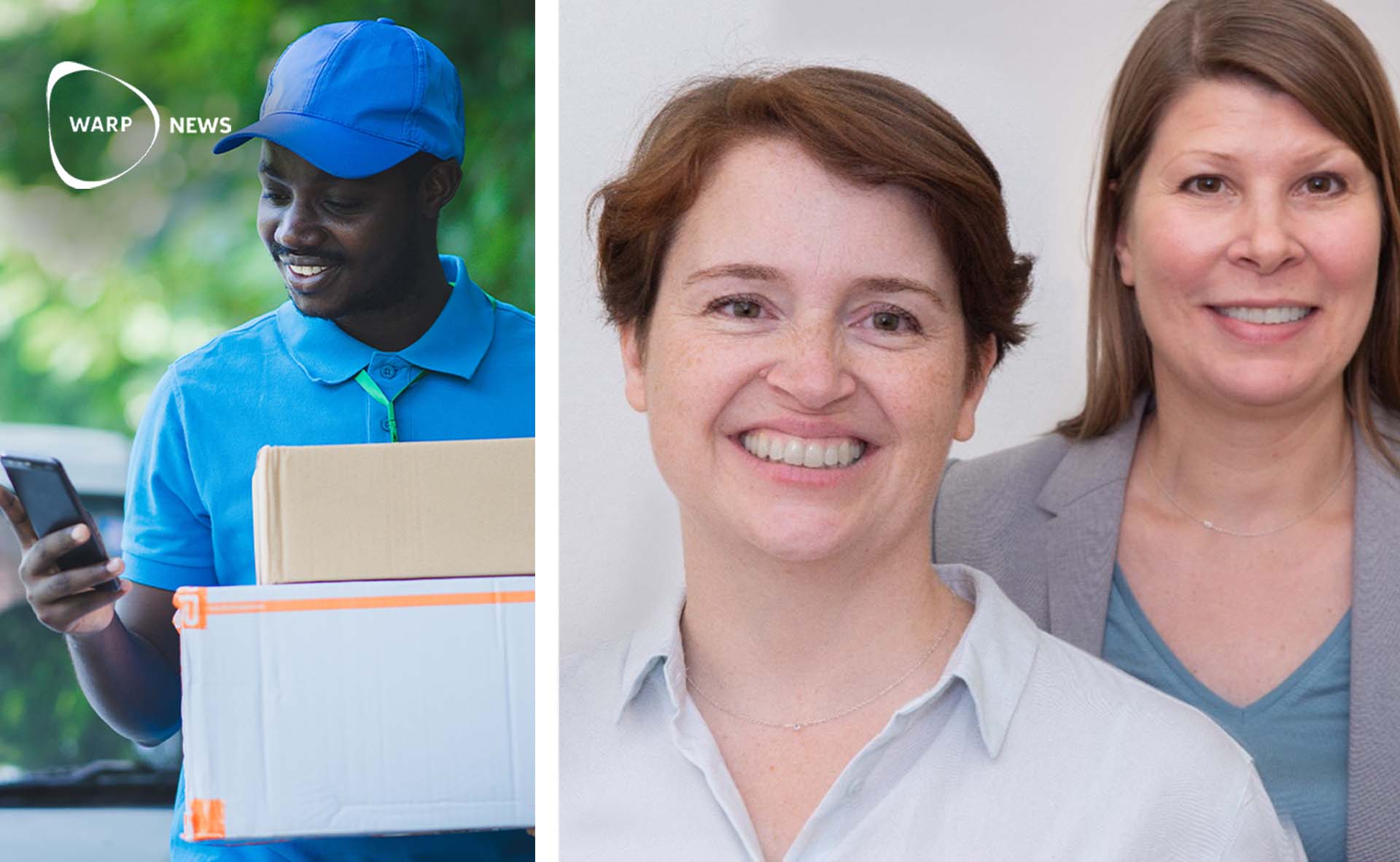
✉️ This company address the address problem
About half of the world's population lacks a real address. In other words, a description of a physical place where you as a person can be found. Why is it so important to have an address then? Isn't it a bit old-fashioned in these digital times?
Share this story!
A physical address isn’t old-fashioned. On the contrary, a physical address is the beginning of a digital identity. High-speed internet and 4G are important, but access to physical roads and addresses are still necessary. Without a connection to a place, you may find it difficult to exercise your civil rights and use digital services. It becomes difficult to order things online, and how, for example, should rescue services find you if there is no information about where you live? But it's not just about being found, you may want to find someone or something yourself.
The matter has become even clearer during the ongoing pandemic as so many have worked, shopped, informed, educated, and enjoyed themselves remotely. About 50 percent of the world's population lacks a physical address and in many parts of the world, they still have various forms of improvized solutions to describe where they live. It can be a mouthful such as "... leave the village, continue past two cornfields, turn left at the gas station, and when you get to the church, you see a small house with a blue roof. I live behind that house. There is a yellow bicycle outside”.
In the rainforests of Mexico, people still create their address using, for example, Coca-Cola and Fanta bottles that are hung in trees. The result is something like: "you'll find my house at the very end of the road, marked with two bottles of Coke and a bottle of Fanta ...".
In many countries, e-commerce is still handled by online traders, and the distribution often takes place via a "hole in the wall" where you as a consumer can pick up your package. A middle-hand that certainly makes it possible to buy products from all over the world, but it is cumbersome, time-consuming, and expensive.
There's a stigma around buying contraceptives and HIV medicine in certain parts of the world. Home delivery is definitely preferable over standing in a crowded and cramped post office where everyone can see pretty much everything. However, home deliveries require a physical address.
Driven by almost hopeless problems
Karoline Beronius, the co-founder of Addressya, has worked for many years with the development of IT services and societies' digitalization. She says she's driven by issues related to democracy and human rights. After working with countries such as Afghanistan, Honduras, Uganda, and Rwanda, she has gained a lot of experience. Among other things, how important it is to have a basic and functioning infrastructure in society.
An important example concerns the vaccination of young children. To be sure that the right child gets the right vaccine at the right time, everything needs to be properly organized. Above all, it's important to reach the mother with information. It's a big challenge in many countries across the world as many children and adults lack ID documentation.
Karoline says that failed systems trigger her. Ideally, they should be major in scale and nearly hopeless, like creating addresses for people in places with no functioning infrastructure. That is why she and Maria Cheadle started Addressya in 2017.
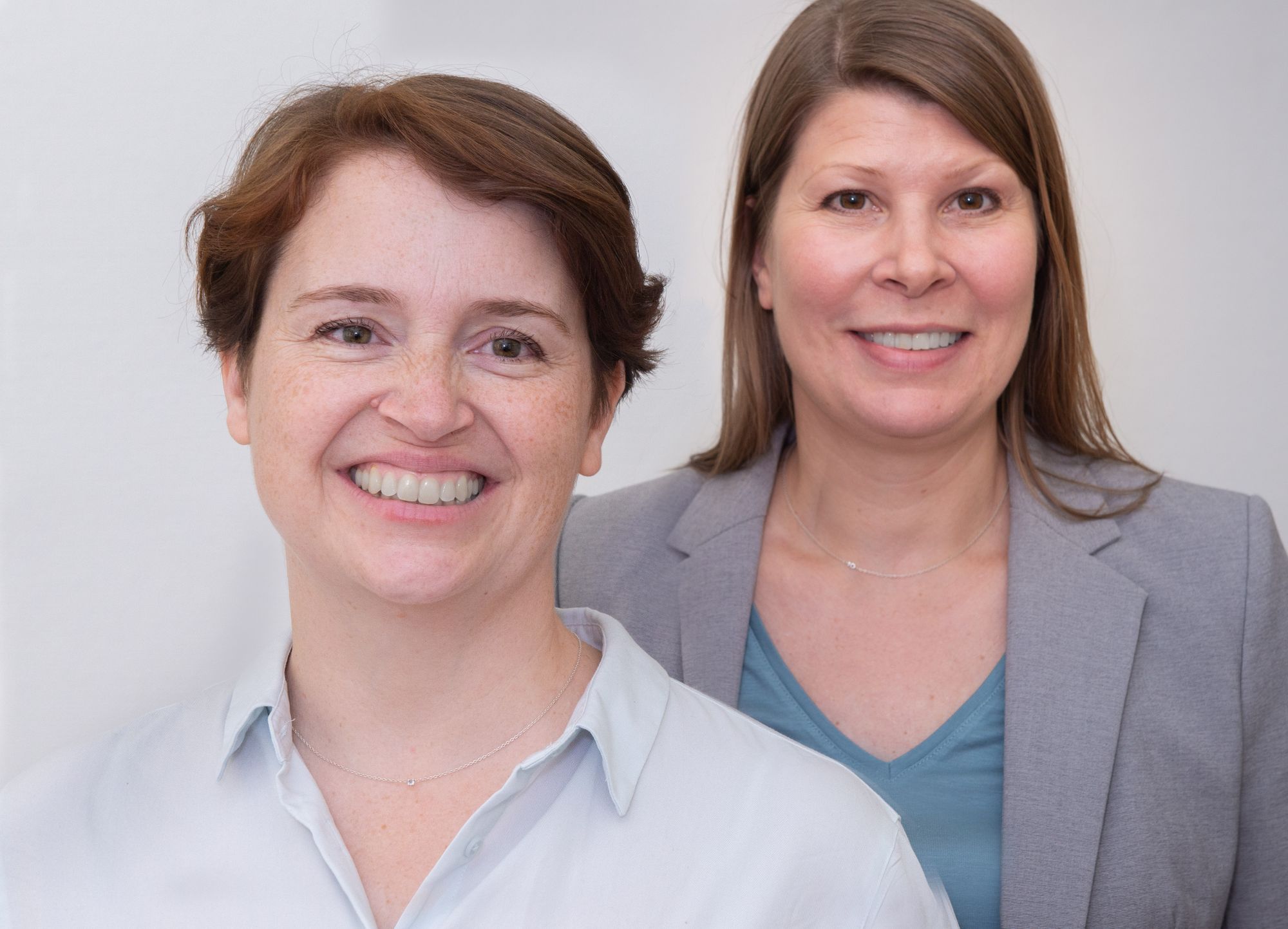
The idea behind the start-up company is to create and offer a digital platform that makes it possible to register an accurate and easy-to-use address easily. The service itself does not really create a unique address point but builds a position based on other already existing data. Data such as photos of the house in question, combined with GPS coordinates, existing address data, and a supplementary description in multiple languages. Easy to use. Easy to share.
The major challenge is - and especially in more repressive environments - to protect personal integrity. You may not want everyone to be able to find you. The demands for security in the application are therefore very high. For Karoline and Maria, it's important to protect the identity of individuals. The user can therefore choose in the app who's able to see what. It's referred to as "privacy by design and default." Their service was well adapted to the introduction of GDPR even before it gained legal force within the EU.
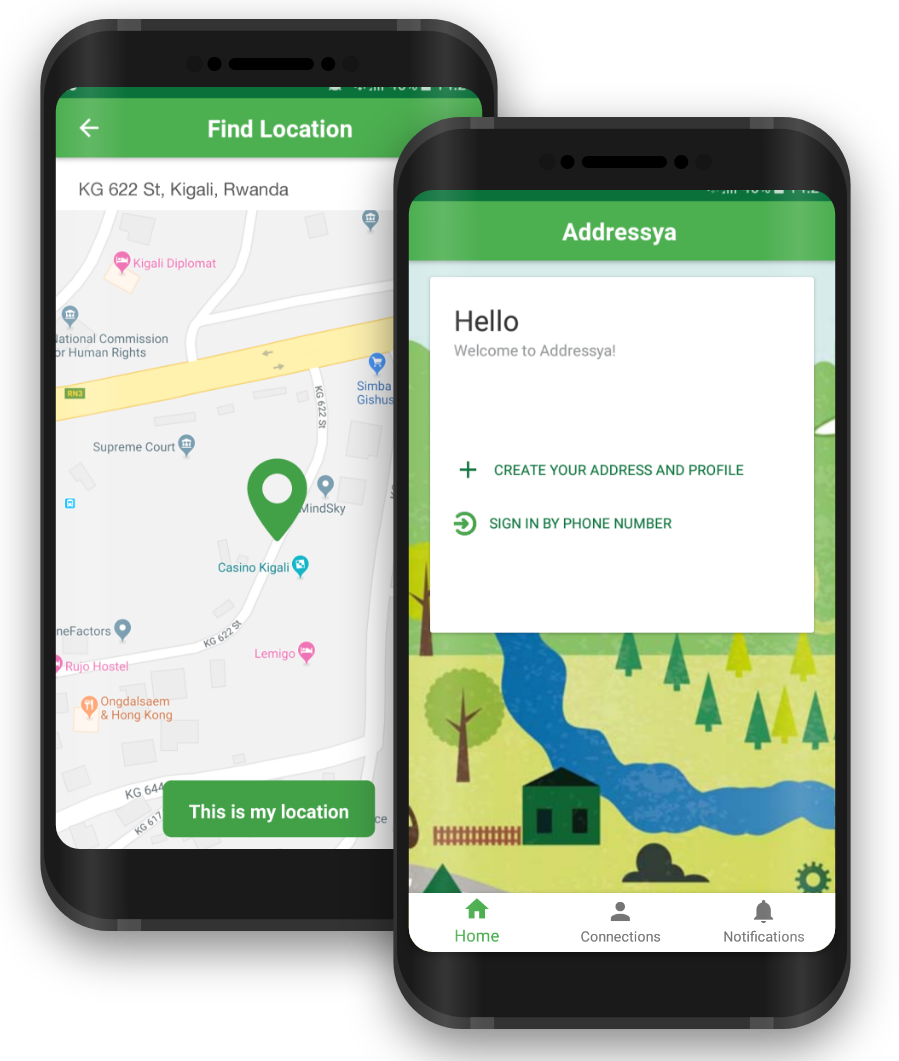
Addressya has been available in Rwanda for a couple of years now and as of last year also in Uganda. They have 35 employees, in three country offices, and with ten nationalities. The head office is located in Stockholm and the software is being developed in India.
In both Rwanda and Uganda, there's a current trend where an ever-increasing number of physical addresses are being created, and covid-19 has accelerated progress. They are often created in collaboration between the state and the World Bank, but it is mainly in larger cities that addresses are created. In Kigali, for example, the streets are numbered using the same system as in Manhattan. Buildings also get a number. But, outside cities and highways, barely any progress has been made at all.
Ordering food online accelerates progress
Rwanda as a country invests on a major scale to become the Singapore of Africa. On the one hand, the pandemic makes it more difficult to do business, but on the other hand, it has turned off-line into on-line for a considerable number of people. In a city like Kigali, ordering food from home quickly became commonplace. The problem is delivery, which often takes a long time. However, Rwandans are patient and accustomed to waiting and not being found. Home delivery of food often includes four or five phone calls between the customer and supplier to find one another. The food is often cold by the time it reaches the customer.
Of course, both sellers and delivery workers lose time and money. Just the phone call itself is expensive. And, all fuel that's used completely unnecessarily means that the progress is going backward rather than forwards. Perhaps the most problematic in this extreme inefficiency is the alternate cost. Karoline Beronius explains:
"That is, the cost to spend so much time on each customer and not be able to take the next job. Money that could be better spent on more important things such as health care, schooling and good nutrition."

Rwanda and Uganda are very different as countries and markets. Uganda is big and had an early need for the type of services that Addressya delivers. In Uganda, the vast majority also speak very good English. Rwanda, on the other hand, is a tiny country. Not much bigger than Dalarna. In Rwanda, French remains the most broadly used language. The security situation is, of course, important when entering a market. Crime is more widespread in Uganda.
"However, you have to be street smart in both countries. Especially after dark," says Karoline.
In terms of digitalization, Rwanda has come a long way. And although the country is partially inaccessible due to its topography, it has fiber in large parts of the country. 4G is currently available in almost 98 percent of the country. Many, even the poorest, have a mobile phone, although often basic. Some have been equipped with a free mobile telephone through various ongoing campaigns such as "Connect Rwanda." And, even if it is not possible to use 4G, you come a long way with 2G in combination with the standard telecommunications network and old-fashioned USSD technology, which is still highly viable in many parts of Africa.
The differences between Uganda and Rwanda are, according to Karoline, from the perspective of Addressya, exclusively beneficial.
"We learn a lot together with our first customers. In addition, it creates a certain redundancy in the work when, for example, the countries close down or take strict measures to combat the spread of Covid-19," she says.
Karoline and Maria's company and their address application are in many ways to be considered unique. Both founders believe that their business has very good support both in Stockholm's start-up world and in the countries where they are established. They have attracted well-known people to their board and have been gifted with support from both Swedish Vinnova and individual investors, and have been awarded prizes such as SAS Scholarship Sweden (2018), ImpactMaker of Venture Cup Region East Sweden (2018), DI Digital's Female Founder Stockholm (2019), as well as DI Digital's Female Founder New York (2019). An impressive list, to say the least.
To find and to be found
Addressya is now focusing on the future by building collaborations in both the private and public sectors. And there's hope that the positive effects of more people getting a physical address will contribute to progress in other areas. Globally, the e-commerce sector is thriving in both the western world and in developing countries. And to a great extent, it's because of the big boom of home deliveries of food specifically.
The challenge is - as previously mentioned - to keep it warm and fresh when you as a supplier dodge in and out of traffic. But, of course, an address is more than food. Addresses enable authorities and organizations to reach all people with their services. A kind of civil right. To find and to be found. No information society without a robust infrastructure. And for the digital infrastructure, in addition to telephone and broadband, identity and address services are also needed. And here Karoline and Maria have definitely exposed a need and provided a genius solution.
By becoming a premium supporter, you help in the creation and sharing of fact-based optimistic news all over the world.
